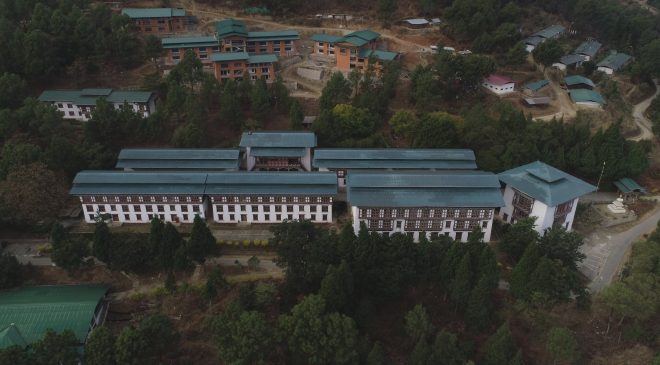
The College of Natural Resources (CNR), the then Natural Resources Training Institute (NRTI) came into existence out of the need to support sustainable development in Bhutan. It is the premier Institution of Higher Education Bhutan in the fields of Agriculture, Rural Development and Natural Resources Management. Its goals and objectives are aligned towards achieving the national vision of Gross National Happiness. We believe that sustainable livelihood enhanced by a robust rural economy, pristine nature through sustainable management of Natural Resources and living culture and tradition fostered by the thriving rural community is key to attaining Gross National Happiness. This belief is reflected in the College’s orientation and its vision.The College is committed to fulfilling the needs of the country and the society through provision of higher education that is targeted at poverty reduction, rural development, youth employment and sustainable Natural Resources Management.The six Departments of the college namely, Department of Agriculture, Department of Animal Science, Department of Forest Science, Department of Food Science and Technology, Department of Environment and Climate Science and Department of Sustainable Development currently offer seven undergraduate programs and two Master’s degrees, namely, Master’s in Development Practice (MDP) and M.Sc.in Natural Resources Management.
History
The College of Natural Resources was established in1992 by the Ministry of Agriculture and Forests to train Extension Agents. The concept of training is based on the Bhutanese farming system in which crops, livestock and forests are integral parts of the rural livelihood system. Towards late 1980s, the then Ministry of Agriculture had reviewed the policy of Renewable Natural Resources (RNR) sector development. One very important outcome of the review was the integration of training programs of the different departments under the Ministry of Agriculture. The National Agriculture Training Institute at Paro, the Royal Veterinary Institute at Serbithang and the Bhutan Forestry Institute at Taba was brought under one umbrella and the then Natural Resources Training Institute (now known as the College of Natural Resources) was established at Lobesa with funding support from Swiss Development Corporation (SDC), Helvetas and Royal Government of Bhutan.With the launching of the Royal University of Bhutan (RUB) in the year 2003, the then NRTI was inducted as a member college of the university in the year 2004. It was renamed as the College of Natural Resources and started offering degree programmes.
Vision
The College of Natural Resources will strive to be a dynamic and internationally recognized centre of learning that promotes GNH and sustainable development through leadership in education, research and professional services in Agriculture, Natural Resources Management and Rural Development.
Mission
- Offer relevant broad-based higher education in Agriculture, Natural Resources Management and Rural Development
- Serve as a resource centre for high quality professional and advisory services in the area of Agriculture, Natural Resources Management and Rural Development
- Generate and transfer knowledge through research in Agriculture, Natural Resources Management and Rural Development
- Promote academic culture infused with GNH values for intellectual and personal development
Core Values
The college strives to achieve its vision and mission guided by its core values.
- Respect for people and the environment
- A love for learning that fosters Creativity and innovation
- Professionalism with Accountability and Transparency
- Teamwork and collaboration
